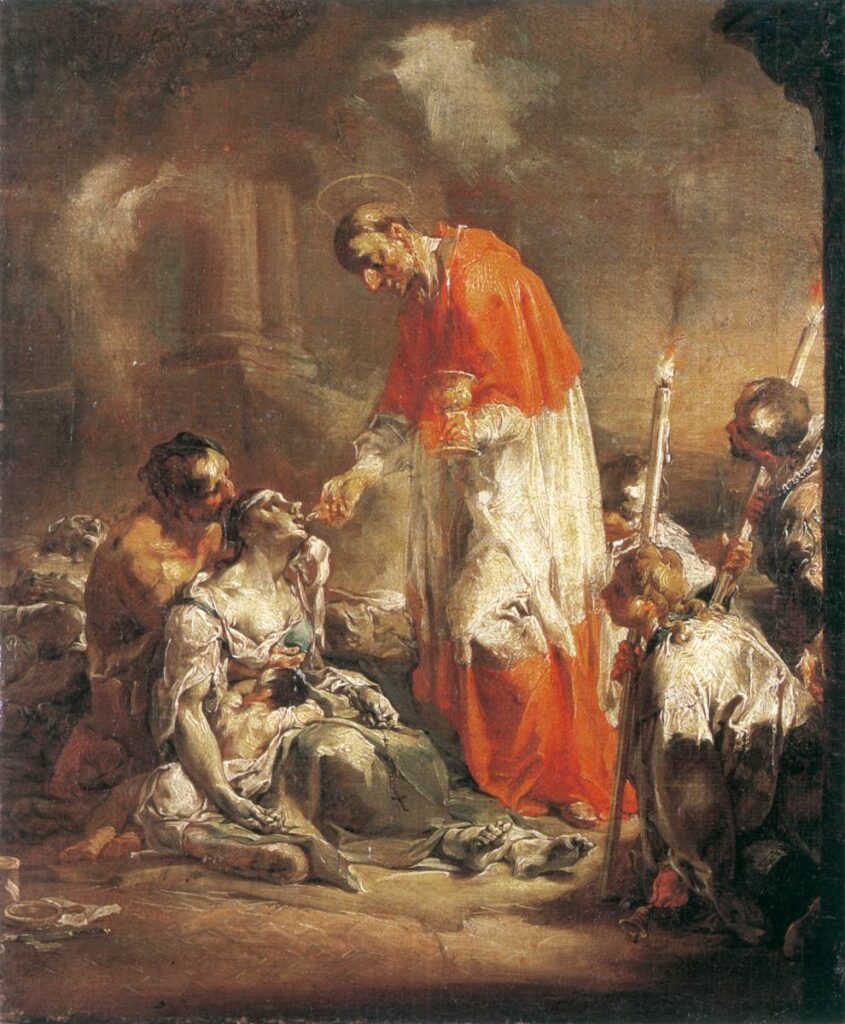Over the past decade, I’ve suggested – too many times to count – that we’re living through a kind of second Reformation. An entirely new Reformation. Yes, I know: Saying that can sound vaguely nutty and a bit like a broken record.
The differences between the 16th century and our own are obvious. In 1523, Europe was deeply Christian. The disputes of the day were bitter, but they were all internal to a Christian civilization. They involved Scripture, theology, sacraments, the nature of religious authority, and the structure of the Church. These things permeated every aspect of daily life. The idea of the nation-state was still very young. Sex still made sense. Notions like modern “secularism” and “gender fluidity” would have drawn blank stares. Or worse.
In 2023 – at least in the developed world – religion is a sideshow. Or that’s the way it can seem. But appearances often deceive. In practice, there are no “unbelievers.” We all believe in something. That includes every self-described cynic and agnostic, because claiming to believe in nothing is itself a choice to believe – since “nothing” is still a something that involves a choice. We then build our systems of reasoning and our perceptions of the world on the foundation of our beliefs.
In our case, we Americans are a deeply pragmatic, results-driven people. The words novus ordo seclorum – “a new order of the ages“ – are stamped right on the Great Seal of the United States. They’ve been there since the founding. This makes us enormously creative and productive.
It also, absent a vigorous Biblical faith, makes us the most thoroughly materialist, practically atheist nation in history. As Biblical faith has declined, we’ve simply switched our religious instinct – our need to sacralize something or someone – to our tools; in other words, to science and technology. That’s where we really place our trust. They “deliver the goods,” here and now, in a way that prayer to an invisible God seemingly can’t.
Thus, what Jews and Christians once viewed as sacred, American culture now instinctively translates into the contingent and transactional. Marriage understood as a man and a woman becoming one flesh, sealed in a permanent, procreative covenant with sacramental meaning, instead becomes a gender-blind, child-optional LLC governed by contract and appropriate escape clauses. The idea of a pre-nuptial agreement is, in a sense, perfectly “American.”
So what I mean by a “new Reformation” is literally a new re-formation, a new and basic reframing, of how we think about the world, our politics, our social organization, and ourselves. Disrupting our beliefs about sexuality, marriage, and the nature of the family, for example, strikes at the foundation of a healthy culture. But we don’t fully understand what’s happening today because we’re in the middle of it.
And meanwhile, a very new and different kind of world is emerging. That creates confusion. Which creates anxiety and conflict. Which then creates lives empty of hope. As others have already noted, the key issue of our time is summed up in Psalm 8, verses 4 and 5, where the Psalmist asks God, What is man that you are mindful of him, and the son of man that you care for him?

What exactly does it mean to be human? Are we made, as the Psalmist claims, little less than angels and crowned. . .with glory and honor? Or are we really just animated carbon with an attitude? And if we’re the latter, then what can expressions like “human dignity,” “human nature,” and the “sanctity of life” possibly mean?
Each of us is more than just an intellect and a will trapped inside a disposable meat wrapping. We’re not just a happy accident of biology. We’re created as an organic unity of mind, body, and spirit. The body matters. It’s essential to who we are, how we create, and how we love. It has an eternal destiny. Which is why “the resurrection of the body” is a vital element of the Apostles’ Creed that so many Christians routinely pray.
We need a renewal of our faith, but how do we get it? A few years ago, I asked a friend, Rabbi Mark Gottlieb, how Jews had managed to survive so much persecution over the centuries. He answered me with one word: zakhor. That’s the Hebrew word for “remember.” Jewish memory is, and always has been, the guardian of Jewish identity, renewal, and community.
And of course that makes perfect sense: A man with amnesia is a man without a memory. And a man without a memory is a man without identity, a man doomed to be defined and dominated by others. So it is for the individual human being; so it is for peoples, nations, and communities; and so it is for the Christian Church.
We live in a time that encourages us to forget the past; to live only for ourselves; to swim in a permanent, present tense of distractions and appetites. But we’re not powerless. We’re never powerless, as Scripture teaches us again and again.
So if we want to turn the world right side up; if we want a more humane and godly future, we need to start by recovering who we are and why we’re here. That requires the work of remembering; going back to the Word of God and the arduously learned wisdom of our Catholic teachings and tradition. It requires living like we really mean what we claim to believe. Not just at home, not just in our hearts, but in our public words and actions.
As for marriage, that cornerstone of any sane society: God made us male and female for a reason; different from each other, dependent on each other, and faithful to each other for the sake of each other’s salvation. And he gave us the privilege of co-creating a new and better world through the gift of children.
So maybe we should stick to the plan.
__________















